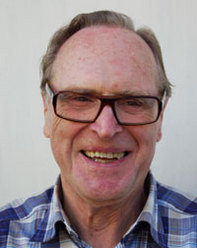 W
WKarl Thorsten Gunnar Andersson was a Swedish toponymist, and a former Professor of Linguistics at Uppsala University.
 W
WElmer H. Antonsen was an American philologist who specialized in Germanic studies. Antonsen was born in Glens Falls, New York on 17 November 1929. He earned degrees in German at Union College where he took the B.A. degree, and then at University of Illinois at Urbana–Champaign where he studied under Ernst Alfred Philippson for his doctorate. He taught German Studies, Germanic Philology and Germanic Linguistics at the University of Iowa in the 1960s before moving back to the University of Illinois to eventually rise to Full Professor. He was visiting professor at the University of Göttingen. He retired in 1996, and was awarded professor emeritus status. He was a known expert on runology. Antonsen died in Urbana, Illinois on 25 August 2008.
 W
WHelmut Birkhan is an Austrian philologist who is Professor Emeritus of Ancient German Language and Literature and the former Managing Director of the Institute for Germanic Studies at the University of Vienna.
 W
WErik Brate was a Swedish linguist and runologist.
 W
WJames Wilson Bright (1852–1926) was an American philologist active in the late nineteenth and early twentieth century. He was a Professor of English Philology at Johns Hopkins University, and specialized in early Germanic languages and Old and Middle English specifically.
 W
WDennis Howard Green was an English philologist who was Schröder Professor of German at the University of Cambridge. He specialized in Germanic philology, particularly the study of Medieval German literature, Germanic languages and Germanic antiquity. Green was considered one of the world's leading authorities in these subjects, on which he was the author of numerous influential works.
 W
WJacob Ludwig Karl Grimm, also known as Ludwig Karl, was a German linguist, philologist, jurist, and folklorist. He is known as the discoverer of Grimm's law of linguistics, the co-author of the monumental Deutsches Wörterbuch, the author of Deutsche Mythologie, and the editor of Grimm's Fairy Tales. He was the older brother of Wilhelm Grimm, of the literary duo the Brothers Grimm.
 W
WHermann Güntert was a German linguist who specialized in Germanic and Indo-European linguistics.
 W
WRichard Heinzel was an Austrian philologist who specialized in Germanic studies.
 W
WKarl Helm was a German philologist who specialized in Germanic studies
 W
WMoritz Heyne was a German Germanic linguist (Germanist).
 W
WHermann Hirt was a German philologist and Indo-Europeanist.
 W
WFerdinand Holthausen was a German scholar of English and old Germanic languages.
 W
WAdolf Holtzmann was a German professor and philologist. His name is associated with a Proto-Germanic sound law known as Holtzmann's Law.
 W
WJohannes Alphonsus Huisman, also known as J. H. Huisman, was a Dutch philologist who specialized in Germanic studies.
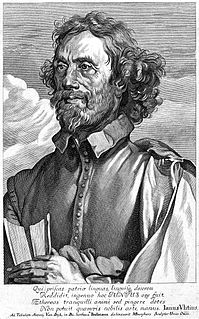 W
WFranciscus Junius, also known as François du Jon, was a pioneer of Germanic philology. As a collector of ancient manuscripts, he published the first modern editions of a number of important texts. In addition, he wrote the first comprehensive overview of ancient writings on the visual arts, which became a cornerstone of classical art theories throughout Europe.
 W
WPaul Kretschmer was a German linguist who studied the earliest history and interrelations of the Indo-European languages and showed how they were influenced by non-Indo-European languages, such as Etruscan.
 W
WHans Kuhn was a German philologist who specialized in Germanic studies. He was Professor of Nordic philology at the University of Kiel.
 W
WWinfred Philip Lehmann was an American linguist who specialized in historical, Germanic, and Indo-European linguistics. He was for many years a professor and head of departments for linguistics at the University of Texas at Austin, and served as president of both the Linguistic Society of America and the Modern Language Association. Lehmann was also a pioneer in machine translation. He lectured a large number of future scholars at Austin, and was the author of several influential works on linguistics.
 W
WEdward Lye (1694–1767) was an 18th-century scholar of Old English and Germanic philology.
 W
WCarl Johan Sverdrup Marstrander was a Norwegian linguist, known for his work on the Irish language. His works, largely written in Norwegian, on the Celtic and Norse components in Norwegian culture, are considered important for modern Norway.
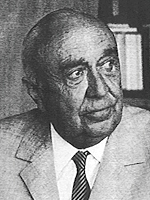 W
WFriedrich Maurer was a German philologist who specialized in Germanic studies.
 W
WPaul Jules Antoine Meillet was one of the most important French linguists of the early 20th century. He began his studies at the Sorbonne University, where he was influenced by Michel Bréal, Ferdinand de Saussure and the members of the L'Année Sociologique. In 1890, he was part of a research trip to the Caucasus, where he studied the Armenian language. After his return, de Saussure had gone back to Geneva so he continued the series of lectures on comparative linguistics that the Swiss linguist had given.
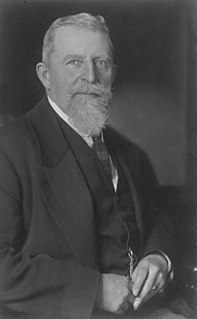 W
WRudolf Much was an Austrian philologist and historian who specialized in Germanic studies. Much was Professor and Chair of Germanic Linguistic History and Germanic Antiquity at the University of Vienna, during which he tutored generations of students and published a number of influential works, some of which have remained standard works up to the present day.
 W
WHans Frede Nielsen was a Danish philologist who was Professor Emeritus of Historical Linguistics at the University of Southern Denmark. He specialized in Germanic linguistics and runology.
 W
WFrancis Owen was a Canadian philologist and military officer. He was Professor of German and Chairman of the Department of Modern Languages at the University of Alberta, and the author of the first complete scholarly work on the history and early culture of the Germanic peoples. His works on this subject are still cited in modern scholarship.
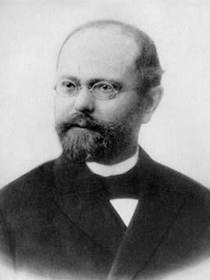 W
WHermann Otto Theodor Paul was a German philologist, linguist and lexicographer.
 W
WEdgar Ghislain Charles Polomé was a Belgian-born American philologist and religious studies scholar. He specialized in Germanic and Indo-European studies and was active at the University of Texas at Austin for much of his career.
 W
WRasmus Kristian Rask was a Danish linguist and philologist. He wrote several grammars and worked on comparative phonology and morphology. Rask traveled extensively to study languages, first to Iceland, where he wrote the first grammar of Icelandic, and later to Russia, Persia, India, and Ceylon. Shortly before his death, he was hired as professor of Eastern languages at the University of Copenhagen. Rask is especially known for his contributions to comparative linguistics, including an early formulation of what would later be known as Grimm's Law. He was elected as a member to the American Philosophical Society in 1829.
 W
WHermann Reichert is an Austrian philologist at the University of Vienna who specializes in Germanic studies.
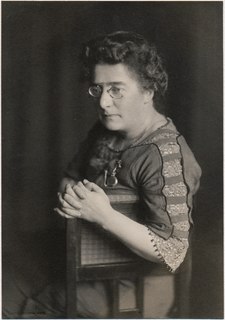 W
WAdeline Rittershaus was a German philologist, a scholar in old Scandinavian literature, and champion for the equality of women. She earned her doctorate in 1898, at the University of Zurich, being one of the first women to do so at that institution, and acquired in 1902, as the first woman, a Venia legendi at the Faculty of Arts of the same university. Her most famous work is a collection of Icelandic folk tales.
 W
WAugust Schleicher was a German linguist. His great work was A Compendium of the Comparative Grammar of the Indo-European Languages in which he attempted to reconstruct the Proto-Indo-European language. To show how Indo-European might have looked, he created a short tale, Schleicher's fable, to exemplify the reconstructed vocabulary and aspects of Indo-European society inferred from it.
 W
WJohannes Friedrich Heinrich Schmidt was a German linguist. He developed the Wellentheorie of language development.
 W
WMoritz Schönfeld was a Dutch linguist who specialized in Germanic linguistics. Mortiz Schönfeld was the author of several reference works on Germanic names and Dutch etymology which have been highly influential and are still in use today.
 W
WFranz Rolf Schröder, often referred to as F. R. Schröder, was a German philologist who was Professor and Chair of German Philology at the University of Würzburg. He specialized in the study German and early Germanic literature, and Germanic and Indo-European religion. He was for many decades editor of the Germanisch-Romanische Monatsschrift.
 W
WEduard Sievers was a philologist of the classical and Germanic languages. Sievers was one of the Junggrammatiker of the so-called "Leipzig School". He was one of the most influential historical linguists of the late nineteenth century. He is known for his recovery of the poetic traditions of Germanic languages such as Anglo-Saxon and Old Saxon, as well as for his discovery of Sievers' law.
 W
WWalter Steinhauser was an Austrian philologist who specialized in Germanic studies.
 W
WSven Birger Fredrik Jansson (1906-1987) was a foreign lecturer 1933-39 at universities such as Reykjavik, antiquarian at the Swedish National Heritage Board (1947–55), professor of Runology at Stockholm University (1955–66) and National Antiquarian (1966-72).
 W
WJakob Sverdrup was a Norwegian philologist and lexicographer.
 W
WHenry Sweet was an English philologist, phonetician and grammarian.
 W
WRudolf Tombo Jr. was a German-born American philologist who was associate professor of Germanic languages at Columbia University.
 W
WRichard von Kienle was a German linguist who specialized in Germanic and Indo-European linguistics.
 W
WJan Pieter Marie Laurens de Vries was a Dutch philologist, linguist, religious studies scholar, folklorist, educator, writer, editor and public official who specialized in Germanic studies.
 W
WJacob Wackernagel was a Swiss linguist, Indo-Europeanist and scholar of Sanskrit. He was born in Basel, son of the philologist Wilhelm Wackernagel (1806–1869).
 W
WWilhelm Wackernagel was a German-Swiss philologist specializing in Germanic studies. He was the father of Indo-Europeanist Jacob Wackernagel.
 W
WPeter Wiesinger is an Austrian philologist who specializes in Germanic studies.